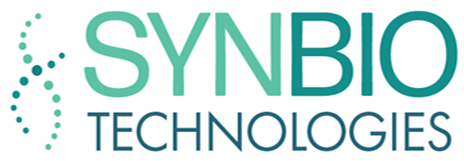Synbio Technologies는 혁신적인 합성 생물학 솔루션을 제공하여 생명과학 연구 및 개발을 지원하는 기업입니다.
The General Introduction of Variant Libraries
Creating variant libraries is a crucial technique for studying gene function. These libraries are essential for improving protein characteristics, directed evolution of proteins, optimizing antibody sequences, affinity maturation, and target discovery. Researchers can alter specific protein sites or DNA regulatory regions to create a variant library containing tens of thousands of sequences. This approach controls sequence diversity and enhances screening efficiency.
Synbio Technologies is dedicated to providing precise variant library synthesis services to customers worldwide. Our offerings include scanning variant libraries, saturated variant libraries, customized variant libraries, and many more. With over a decade of experience in synthesizing libraries of all complexities, we deliver the industry's most efficient and cost-effective solutions.
Highlights
Cost-effective Solutions
Ease of Downstream Screening
High Synthesis Efficiency and Low Error Rate
Customizable Services
Service Details
Alanine Scanning Library
Comprehensive Mutation Coverage:
By leveraging the small size of alanine and its minimal impact on protein structure, scientists have constructed an alanine scanning library through the substitution of alanine for the other 19 amino acid residues.
This innovative approach dissects f protein structures and their function by exploring the role singular amino acid residues have in protein function, active sites, and stability.

Site-Saturation Mutagenesis Library
Precise Mutation of a Single Amino Acid:
Mutate amino acid sites within a protein sequence into 19 other types of amino acids, constructing a site-saturation mutagenesis library. Each sequence mutates one amino acid site at a time, only changing the template by a single amino acid site mutation. This significantly reduces the cost of primer synthesis, offering great advantages for high-capacity libraries with multiple mutation sites, such as NNK libraries.
This innovative method dissects protein structures and their function by exploring the role individual amino acid residues have in protein function, active sites, and stability.

Combinatorial Mutagenesis Library
Precise Mutations at Multiple Sites with Various Amino Acids:
Simultaneously mutate several consecutive amino acid sites within a defined region of a protein sequence into any of the other 19 amino acids. This process forms a combinatorial mutation library, having multiple amino acid sites mutated simultaneously. This causes each sequence to exhibit multiple amino acid site mutations when compared to the template.
This provides a powerful experimental tool for studying the relationship between complex protein structure and function and for research in protein engineering and antibody such as the Trimer library.
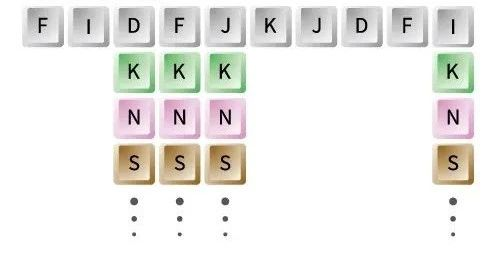
Directed Evolution Library of AAV Capsid Protein
Synbio Technologies offers a comprehensive platform for the design and synthesis of variant libraries. We provide customized, one-stop services for designing, constructing, validating, viral packaging, and bioinformatics analysis of directed evolution libraries specifically for AAV capsid proteins across 12 different AAV serotypes (AAV1-AAV12). With our platform, customers can easily screen for novel and superior AAV capsids, such as those with tissue specificity, immune evasion, and transgene expression, thereby accelerating the development of better AAVs. In addition to our custom services, we have launched a ready-to-use peptide display library for AAV9 capsid proteins. This library is an invaluable tool for optimizing AAV gene delivery vectors, making it easier for researchers to achieve more efficient gene delivery solutions.
AAV9 Capsid Protein Peptide Display Library

Case Study
Case Study 1
The NNK library is a classic degenerate mutation library. The NNK degenerate primers used contain 32 (4x4x2) codon combinations (N= A/C/G/T, K= G/T), covering all 20 amino acids with the ability to saturate amino acids at any site.
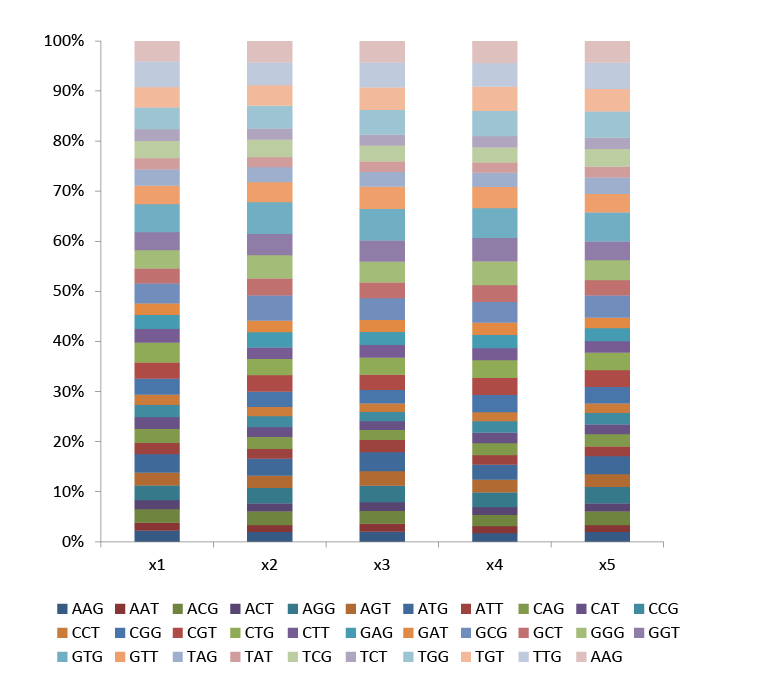
Fig.1 The proportion of each codon contained in the five NNK sites in the NNK library
Case Study 2
Trimer libraries can be used for site saturation mutation to distribute 20 amino acids in equal proportion, further reducing codon redundancy and removing termination codons in the library.
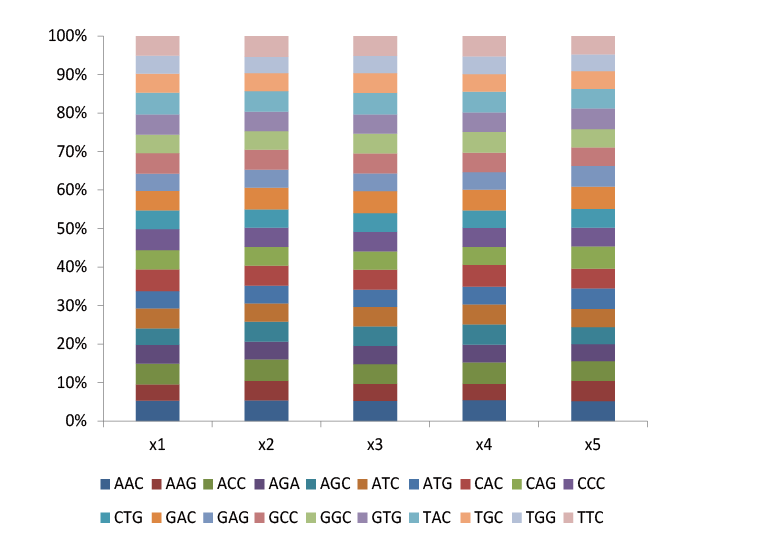
Fig.2 Trimer libraries are also a saturated mutation library with equal distribution of each amino acid
Case Study 3
Trimer libraries can also customize each site to be composed of different ratios of amino acids. Among the four Trimer sites, for example, the X1 Trimer site is A (80%) : G (3%) : R (3%) : S (3%): T (8%) : V (3%)
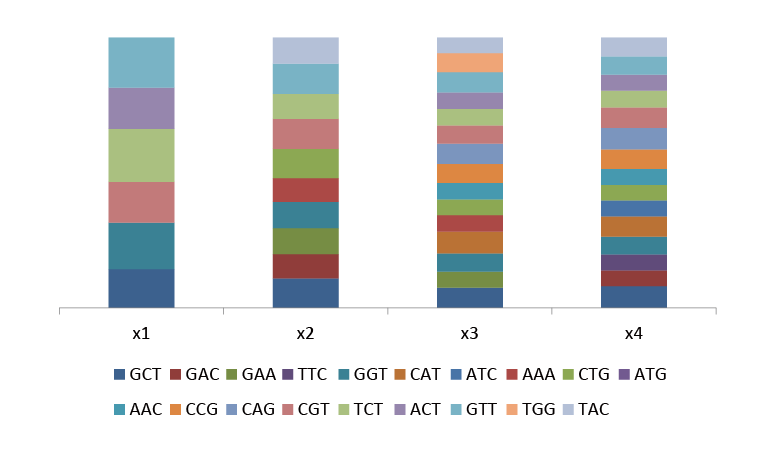
Fig.3 Types and proportions of custom amino acids
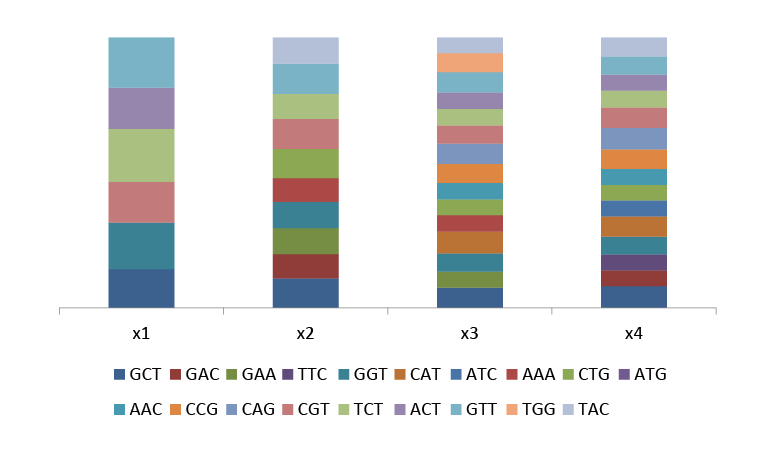
Fig.4 Ratio between actual and theoretical proportion of each amino acid
FAQs
What is a precision variant libraries?
Precision variant libraries are a large collection of mutated homologous genes constructed through modern molecular biology methods. These libraries simulate natural evolution mechanisms by introducing mutations at specific sites or regions; they are often used to study the structure-function relationships of proteins or other biomolecules, providing important experimental tools for fields such as enzyme engineering, biomedicine, agriculture, and food science.
How to choose suitable precision variant libraries?
Selecting the suitable precision variant library depends on specific research objectives and experimental needs. For instance, if the goal is to explore the role of a single amino acid in protein function, an alanine scanning library might be the ideal choice. However, if the aim is to study the function of multiple amino acid sites, a site-saturation mutagenesis library or a combinatorial mutation library would be appropriate. Additionally, other factors must be considered, such as the availability of the mutation library, the robustness of the screening method, and the experimental costs. By carefully evaluating these elements, researchers can choose the most suitable variant library to achieve their scientific objectives effectively.
What are the applications of precision mutation libraries?
Some applications of precision mutation libraries are as follows:
• Protein Engineering: used to improve the catalytic properties, stability, and specificity of enzymes.
• Drug Development: used to screen the key functional areas of drug targets and discovering new drug targets related to diseases.
• Antibody Engineering: helps construct high affinity and specificity antibody libraries for immunotherapy or diagnosis.
• Basic Scientific Research: helps explore the function, regulatory elements, and regulation mechanism of genes to aid the progress of basic scientific research.
SYNBIO의 모든 제품을 만나 보세요!
SERVICES
DNA Synthesis
Vector Selection
Molecular Biology
Oligo Synthesis
RNA Synthesis
Variant Libraries
CRISPR Libraries
Oligo Pools
Virus Packaging
Gene Editing
Protein Expression
Antibody Services
Peptide Services
DNA Data Storage
PRODUCTS
Standard Oligo
Standard CRISPR Libraries
Standard CRISPR Plasmid
ProXpress
Protein Products
ONE STOP SOLUTION
High Performing DNA-RNA-Protein Molecules
Oligonucleotide Diagnostics & Therapeutics
Precision Gene Editing
Value Chain
SYNBIO Technologies - Exclusive Distributor in South Korea "Morebio" 한국 독점 대리점 "모아바이오"
